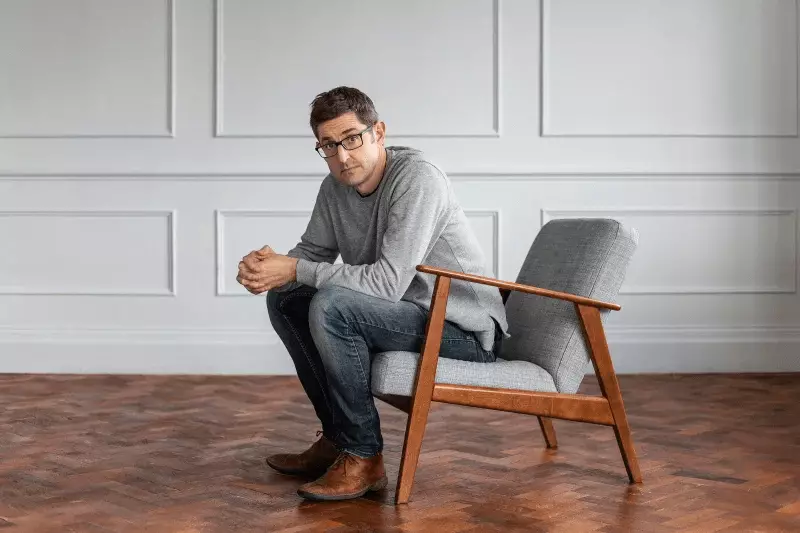In his thought-provoking MacTaggart address at the Edinburgh TV Festival, renowned documentarian Louis Theroux shared his concern about the current state of filmmaking. He argued that an “atmosphere of anxiety” has resulted in a shift towards “less confident, less morally complex filmmaking.” Theroux’s extensive career, spanning three decades, has seen him delve into various taboo subjects, including far-right extremists, sex workers, and paedophiles, challenging societal norms and shedding light on the fringes of society. However, he questioned whether these types of programs would still be commissioned in today’s climate.
Theroux highlighted the emergence of populists and viral social media influencers, which have created a two-tier system of content, contrasting with impartial broadcasters like the BBC. He likened this situation to an “Olympics event where half the athletes are allowed to dope,” emphasizing the disparities and challenges faced by traditional broadcasters. The rise of digital platforms and the ever-changing media landscape have created a dichotomy between the old world of “editorial policy” and balance, and the new digital frontier where anything goes.
Theroux expressed gratitude towards the BBC, acknowledging their support and latitude in pursuing his interests. However, he acknowledged that changes in broader culture are impacting the industry. While increased thoughtfulness about representation, power, and privilege are laudable aims, he questioned whether the focus on not giving offense has led to a decline in confident and morally complex filmmaking. The precepts of sensitivity, although important, have sometimes conflicted with the fundamental principles of freedom of expression.
Theroux alluded to the words of George Orwell, inscribed on the walls of BBC HQ: “If Liberty means anything at all, it means the right to tell people what they do not want to hear.” The clash between these principles and the desire to avoid offense has created an atmosphere of anxiety within the industry. Theroux argued that these shifts extend beyond the BBC, as demonstrated by the initial rejection of one of his recent documentaries by U.S. buyers, only to be picked up by the BBC Select streaming service.
Turning his attention back to the BBC, Theroux expressed both fascination and dispiritedness at how the far-right has attempted to tarnish the broadcaster by exploiting the crimes of serial sex offender Jimmy Savile. Theroux, having created two shows about Savile, emphasized that he had become a convenient scapegoat for discrediting the BBC and anyone associated with it. The BBC finds itself in a “no-win situation,” trying to anticipate and respond to various criticisms from former employees and private newspapers that seek to eliminate competition.
Theroux acknowledged the temptation to play it safe and avoid controversial subjects in order to sidestep criticism. However, he argued that by doing so, the industry is not only failing to fulfill its purpose but also missing out on its greatest opportunities. Avoiding these “pinch points” prevents filmmakers from addressing unresolved cultural issues and navigating the complexities of society, ultimately hindering progress and growth.
Theroux’s observations echoed those of last year’s MacTaggart lecturer, Emily Maitlis, who discussed the impact of populism on journalism. Theroux emphasized the need for confrontational, surprising, and upsetting television. He urged filmmakers to challenge viewers’ assumptions and resist orthodoxy whenever possible. To best serve social justice, he argued that television should strive to engage audiences and take risks, pushing the boundaries of what is deemed acceptable.
Despite his critical assessment of the current state of filmmaking, Theroux concluded with an ode to television, describing it as “godlike.” He highlighted the importance of television in shaping opinions and influencing society. By embracing confrontation, surprise, and innovation, Theroux encouraged filmmakers to strive for meaningful engagement, ensuring that television remains a powerful platform for sparking change and challenging societal norms.
In an era of rapidly evolving media landscapes and shifting cultural dynamics, Theroux’s insightful critique serves as a call to action for filmmakers and broadcasters to find balance between sensitivity and freedom of expression. By embracing the complexities of the human experience and fearlessly exploring untold stories, the industry can invigorate the art of storytelling and continue to push boundaries in pursuit of social justice.

